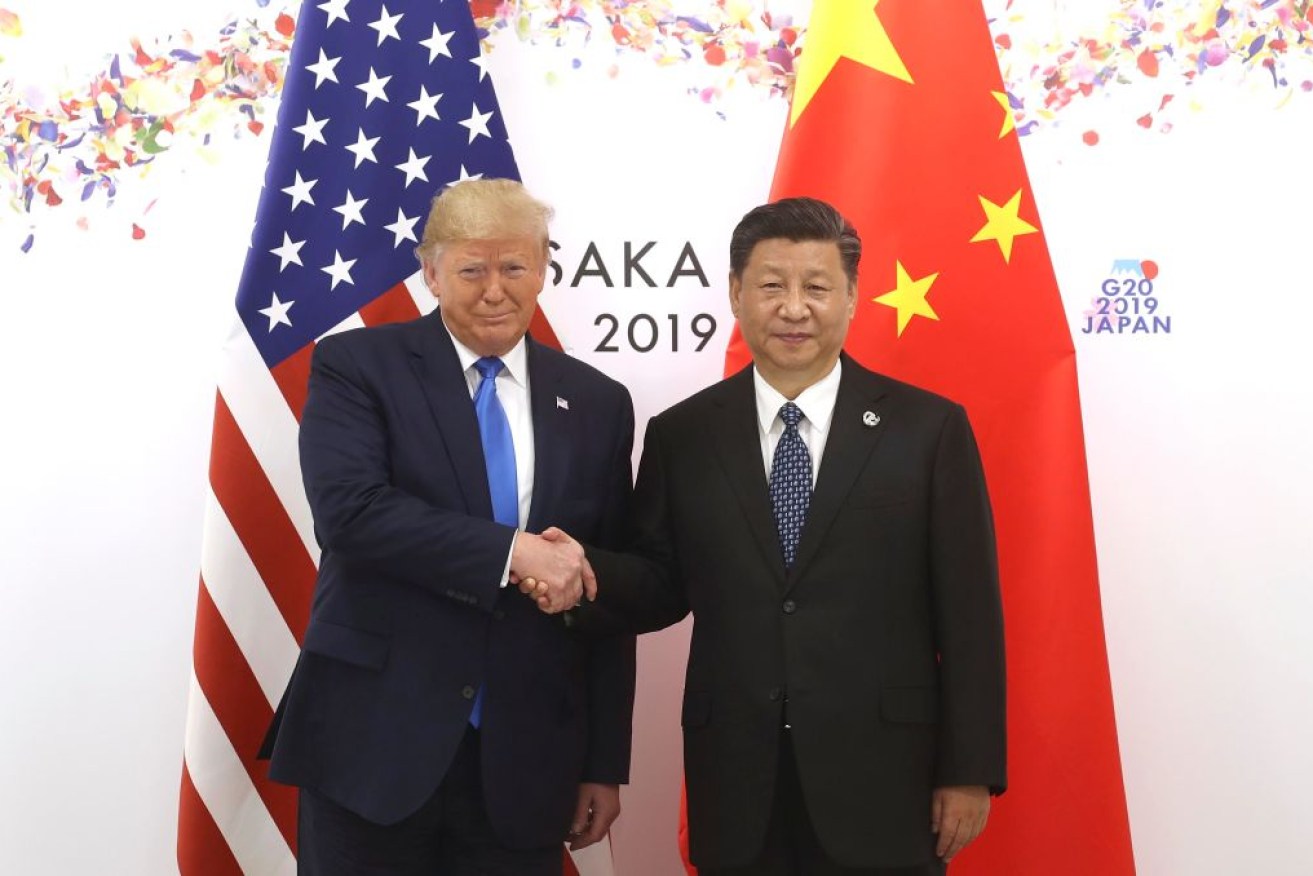‘All hands on deck!’: World’s central banks join RBA’s plea for government help


“It bears repeating: Trade wars have no winners, only losers," Agustin Carstens said. Photo: Getty
The central bankers’ central bank, the Bank for International Settlements (BIS), has joined the Reserve Bank of Australia in warning interest rates alone can’t get the economy firing again.
With the RBA expected to cut its cash rate to just 1 per cent on Tuesday, the BIS general manager Agustín Carstens has delivered a speech titled Time to Ignite All Engines.
In other words, it’s all hands on deck to turn around a slowing economy.
One part of Dr Carstens’ speech seemed to be aimed specifically at the Australian government: “Importantly, after the prolonged period of easy financial conditions, many vulnerabilities have built up and could throw the global economy off course. One such vulnerability is high household debt in many advanced economies, especially those not directly affected by the Great Financial Crisis.
“These historically high debt levels limit the scope for households to drive economic activity.”
Translation: Australian households are already carrying too much debt, so you can’t expect more interest rate cuts to achieve much.
“For the global economy to remain on course towards clear skies, other policies need to play a bigger role and policymakers must take a longer-term perspective,” he said.
“In particular, a better mix is required between monetary policy, fiscal policy, macro-prudential measures and structural reforms. And navigating the way to clear skies also means balancing speed with stability, as well as conserving some fuel to cope with possible headwinds. This matters all the more given the many uncertainties and risks we face today.”

Agustín Carstens seemed to take a veiled swipe at Australia in his speech. Photo: Getty
Dr Carstens was addressing the global economy, but it’s pretty much what the RBA’s Philip Lowe has been telling the Australian government for the past five years.
Unfortunately, it seems the government hasn’t been taking much notice.
The money market is betting that another 25 points off the cash rate on Tuesday is a sure thing and that there will be another cut later this year.
Unlike the Prime Minister, Treasurer and Finance Minister, the market is keenly aware the financial year that finished yesterday was the weakest since 1992.
Yet the only immediate assistance on offer from the government is the promise of $1080 tax refunds – and they’re playing politics with that.
Our economy has softened despite strong trade figures.
Years of real take-home pay shrinking combined with weaker housing prices and lower housing sales has caused a “retail recession” as consumption growth tumbles.
Indeed, continued strong demand from our key trading partners and windfall profits from high iron ore prices means the federal government quite probably finished 2018-19 with a surplus – something that will provide political bragging rights but does nothing to stop unemployment continuing to tick up.
Now Dr Carstens is warning the global trade outlook is threatening.
“One headwind has been the ongoing trade tensions and related uncertainties about the future of the multilateral trading system, which exercise a powerful drag on the global economy,” he said.
“As well as clouding future demand and affecting investment prospects, the trade tensions bring up questions about the viability of existing supply chain structures and the very future of the global trading system.
“It bears repeating: Trade wars have no winners, only losers.”
That’s not the only problem on the horizon. The BIS is concerned about China’s deleveraging and another crop of “structured products” in the US, this time collateralised loan obligations (CLOs) in the $US3 trillion ($4.27 trillion) leveraged loan market.
The BIS also is worried that low-for-long interest rates tend to compress banks’ margins, lower profits and hence reduce banks’ ability to build up capital, essential for a productive economy.
“Very easy financial conditions may boost growth in the near term but may further build up vulnerabilities,” Dr Carstens said. “And persistently low rates may undermine efficient resource allocation and productivity.”
Like Governor Lowe, Dr Carstens warned that monetary policy could not be the engine of higher sustainable economic growth.
“More realistically, it is better regarded as a backstop.
“The plane cannot fly on one engine only; it has to ignite all four. Economic performance continues to rely on extraordinary support from central banks, even with global growth that is still sound. Thus we need a better balance between monetary policy, fiscal policy, macro-prudential policies, and structural reforms.
“Fiscal authorities can help where space is available.
“Factors, such as the levels of public and private debt, will influence whether and when to use fiscal policy, as well as the appropriate balance with monetary policy. When the scenario presents itself, fiscal policy should be used judiciously to boost sustainable growth, supporting aggregate demand with targeted and temporary expansions.”
Such a scenario has presented itself in Australia, but from the government so far – crickets.








